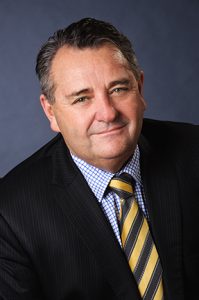As the federal government, Royal Commission and FASEA continue to reshape the industry and fuel many predictions and much speculation, it’s imperative to take time out to seriously consider the future as the ramifications are so immense.
- Paul Tynan
- Tuesday, August 7, 2018
- www.connectfsb.com.au
The financial services industry has seen constant change over the past 30 years which started when Paul Keating created the current superannuation retirement platform. The change that is currently underway should be about putting the client first by moving away from a dual level licensing system to individual adviser licensing system. This single change will reenergise and refocus the profession, however regrettably this is currently hitting a very major roadblock.
The institutions and ASIC are not embracing this client first principle and pushing back as they see this as losing control and is not in their self-interest.
The number of financial planners that will leave the industry cannot be understated and yet the severe impact it will have continues to be ignored. It’s the ‘prefect storm’ of mature age planners; education requirements; demands of the industry exam; the demise of Dover Financial Advisers; the Royal Commission; Grandfathering and over compliance / regulation.
Added to this scenario is a total lack of understanding and appreciation of the role and importance of the advice sector that will see an exodus over the next six years of more than 50% of the current force of financial planners.
Their exit will see business valuations plunge in response to a sudden increase in supply, insufficient buyers, limited access to capital that will all combine to produce the ‘perfect storm’ result. The outcome for the advice sector will be the disappearance of three generations of experience and knowledge by 2024.
Some of these planners will return as Relationship Managers to support the buyers of their practices. Others as coaches and mentors to new planner entrants.
The timing of this self-inflicted disaster couldn’t come at a more inopportune time for the Australian economy and financial services sector as the need for professional advice will significantly escalate as the Baby Boomer generation moves into retirement.
Over the next four decades there will be unprecedented demand for new channels of advice in aged care and residential living; assistance with Social Security and pension
requirements; estate planning; exit and succession of SME business owners; and selffunded retirees – all demanding these professional skills and advice services.
I predict that face-to-face advice will boom for those businesses that are left as mature age consumers will prefer not to entrust their futures and nest eggs to robo-advice or other AI generated advice platforms.
Unfortunately, this much needed P2P service will be limited to the 20% of Australian consumers that can afford it. The remaining and vast majority of consumers will have no option but to revert to robo-advice, new digital advice platforms and social media.
Time and time again – surveys confirm that consumers fare better financially from the benefits of financial planning advice. The current advice framework has left consumers confused with the lack of transparency between advice and product. This has led to a small percentage of Australians being able to afford face-to-face advice.
With all of these proposed changes, the planning industry will struggle to attract a new generation of advice practitioners as the sector will be competing with other industries that have far more attractive employment and career opportunities.
Is it any wonder the non-financial service industries that provide quicker rewards and self-employment opportunities for new entrants will be the beneficiaries?
The financial planning industry has immense brand damage and a long and complicated pathway in order to become a fully qualified.
I have lost faith in the captains of industry and regulators to put self-interest aside and place the welfare of the client first above all.
These decision makers still fail to acknowledge or believe that there is no conflict of interest between advice and product. They continue to base their business models on size which in turn enables them to use capital and shareholder funds to compensate for bad advice.
An industry structured on these principles is simply unsustainable.
Surely a country that created a world class superannuation retirement platform can create the world’s best advice framework where advice is delivered in a transparent manner based on putting the client first. I truly hope self-interest doesn’t win as the loser will be the Australian consumer and economy.

